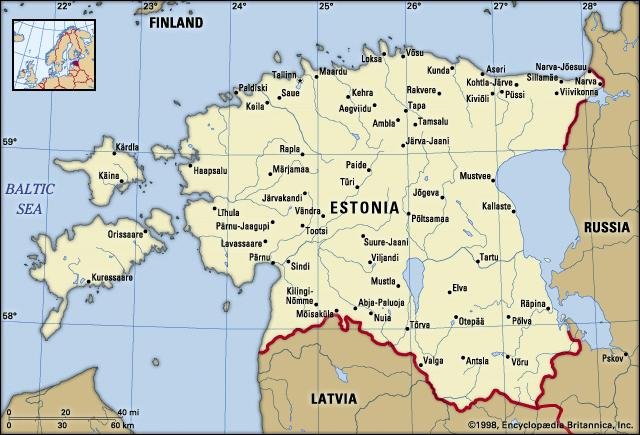Estonia Wants to ICO, But Is Currency Law a Deal-Breaker?

The idea won equal praise and derision, getting lambasted by European Central Bank president Mario Draghi.During his regular press conference, Draghi commented on Estonia’s bid:
“No member state can introduce its own currency; the currency of the euro zone is the euro.”
It’s a notable comment in that it underscores a strange disconnect: are these new cryptocurrency tokens actually currencies?
There’s a new party interested in initial coin offerings (ICOs): global governments.This time, though, they aren’t just out to warn citizens or regulate the new mechanism. Instead, at least one progressive government is considering whether it can take advantage of the technology.The Baltic nation of Estonia made a splash last month proposing a government-supported token – the “estcoin” – as an extension of its e-Residency program. As detailed in a blog post that quickly vent viral, the proceeds would be used to create a type of public-private sovereign wealth fund that would invest in Estonian digital infrastructure projects and technology startups.
The token tiff
While governments around the world are still in the process of deciding whether or not cryptocurrencies meet the definition of a currency – and many times that depends on just when and how they’re used – Draghi’s comments indicate some are lumping ICO tokens into the currency bucket already.
According to the August 22 blog post, authored by e-Residency scheme managing director Kaspar Korjus:
“A government-supported ICO would give more people a bigger stake in the future of our country and provide not just investment, but also more expertise and ideas to help us grow exponentially.”
In this way, the token – which earned the endorsement of ethereum founder Vitalik Buterin – would function as a vehicle for raising proceeds that’s more nuanced and targeted than traditional means: namely, governments issuing bonds in international capital markets.But there were a couple paragraphs in the blog post that likely raised red flags with Draghi, and will raise flags with other Eurozone regulators. Those paragraphs have Estonia envisioning a future where the estcoins could potentially be used as a medium of exchange for goods and services both in and outside the country.
But tokens have key differences from cryptocurrencies that might make them look even less like a currency.In Estonia, for example, the wealth fund seems more about giving Estonia’s 22,000 “e-residents” – foreigners who are allowed access to certain services and benefits normally enjoyed by Estonian citizens – a new way to engage with the country, than giving them a new method for transacting that could rival the the euro.
A possible out?
While Draghi’s remarks left no room for ambiguity about estcoin’s viability as a state-backed digital currency, the ECB’s Ehrlich didn’t rule out the proposal entirely. Instead, he suggested that, because the project would be undertaken via a public-private partnership, it would be outside of the ECB’s jurisdiction.“[M]y understanding is that it’s a private idea and no official position. The ECB will not comment on ideas brought forward by the private sector,” he told CoinDesk.Therefore, with the right combination of messaging and legal sleight of hand, the project might just pass muster with European technocrats.Heller reckoned that for the project to have a chance, it would need to as a bond-like financial instrument that is neither an official currency nor a traditional bond.Further, the tokens would need to be tied to a quasi-official entity:
“What would be possible is if it’s issued by some state-owned entity. We have this distinction that, say, debt of the gas company is not public debt because it’s a gas company, even if it’s owned by the government.”
If Estonia is indeed able to thread the needle and launch the token without breaching its Eurozone obligations, the project will possess an aura of legitimacy that means it should have no problem attracting hungry ICO investors, reckoned David Gerard, a U.K.-based commentator and author of “Attack of the 50 Foot Blockchain.”“Something offered by a government is going to attract attention,” he said. “The value proposition for their ICO would just be, ‘We’re a sovereign country with a decent credit rating for our size,’ which is pretty attractive – especially in a bubble.”
source; WWW.bitcoin.xyz
Salam KSI @steemitaceh @steemitindonesia Terima kasih Upvote, follow and resteem.
My friend, a kind reminder here.
#cn tag is stand for Chinese.
However, no Chinese was detected in this article.
Please use wisely for your tag,thank you
ok, thank u